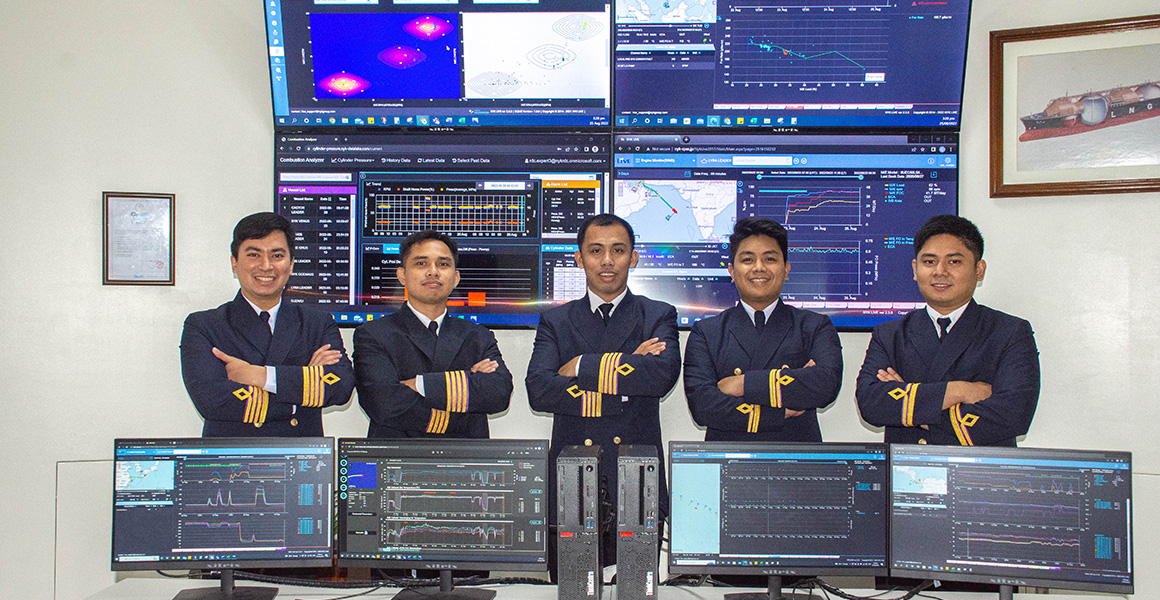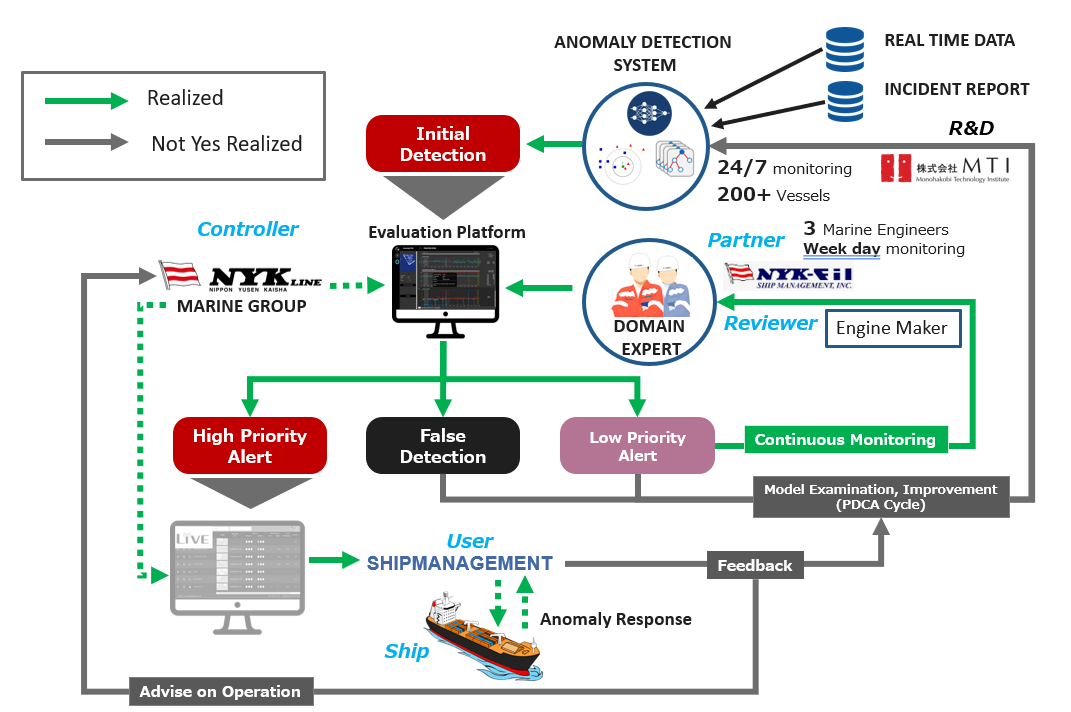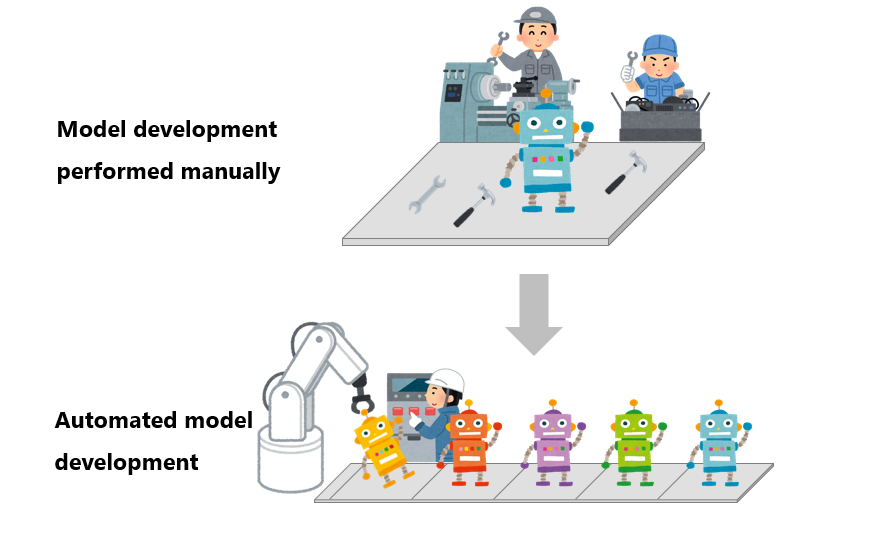Remote Diagnostic Center
October 3, 2022
Ship engine condition monitoring at RDC
■Development of anomaly detection system utilizing big data
NYK has established a system that enables the condition of ships operated and managed by NYK to be monitored from land by collecting data from various sensors on board the ships using satellite communications.
In order to maximize the use of this ship monitoring system for safety management of operating vessels, we have conducted research on an anomaly detection system that can analyze a vast amount of data sent from vessels and detect malfunctions in the engine plant. Using multiple analysis tools such as machine learning models, we have succeeded in developing a system that can detect anomalies in data behavior and issue alerts, and the system is already in operation.
In 2020, we established Remote Diagnostic Center (RDC) in the Philippines, where experts with onboard experience and expertise will diagnose vessels’ condition based on alerts from the anomaly detection system, and communicate with onboard crew to prevent accidents and failures.

Remote Diagnostic Center
■To enable early and reliable detection of anomalies
At RDC, experts look at anomalies in the data patterns detected by the anomaly detection system, estimate the likely cause of the malfunction, consider how to deal with, and then communicate with vessels. By utilizing the results of the experts’ diagnosis and feedback from vessels as learning data, the anomaly detection system will further deepen its learning and become capable of detecting anomalies with higher accuracy.
In recent years, sensor performance has improved and the communication environment between ship and land has also improved, enabling more and more measurement data to be acquired on land at a higher granularity. In response to such data enhancement, MTI is continuing research and development of new analytical models that incorporate the latest machine learning technology. By studying the engine characteristics that differ from ship to ship, and taking into account of the changes in characteristics due to maintenance, it is possible to detect signs of failure at an earlier stage. Our goal is to build a comprehensive anomaly detection system that combines such multiple analytical models.

Collaboration of anomaly detection system and experts
(Expert-in-the-loop concept)
In order to operate an advanced anomaly detection mechanism that can handle new types of vessels to be built in the future and perform multifaceted analysis while continuously learning, research is being conducted while improving models so that various analysis models can be built on a unified foundation (MLOps). In addition, to enable more accurate data analysis, we are developing a mechanism to monitor data quality and distinguish between sensor anomalies and engine anomalies. In this way, we are conducting practical research to contribute to safe navigation, with a view to quality control of the data itself and the operation of machine learning models.

Streamline the model development with MLOps
(Writers: Putu Hangga Nan Prayoga, Hiroki Masaki, Tsuyoshi Shibahara)
Related Link
MTI Journal No.19 “Domain Experts x AI to Support Safe Vessel Operation” by Hiroki Masaki
Contact
For additional information about this, please contact us by our inquiry form.
